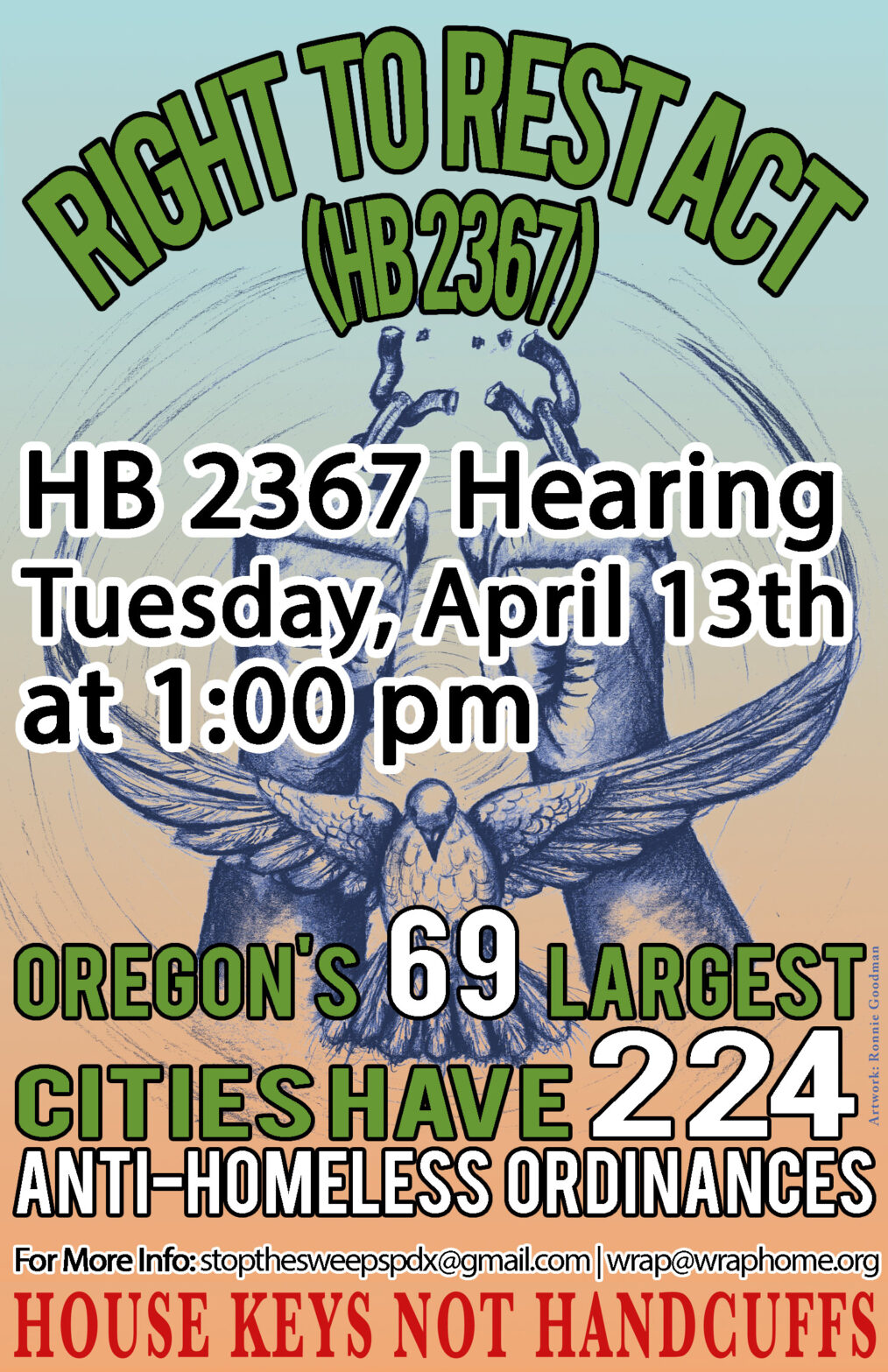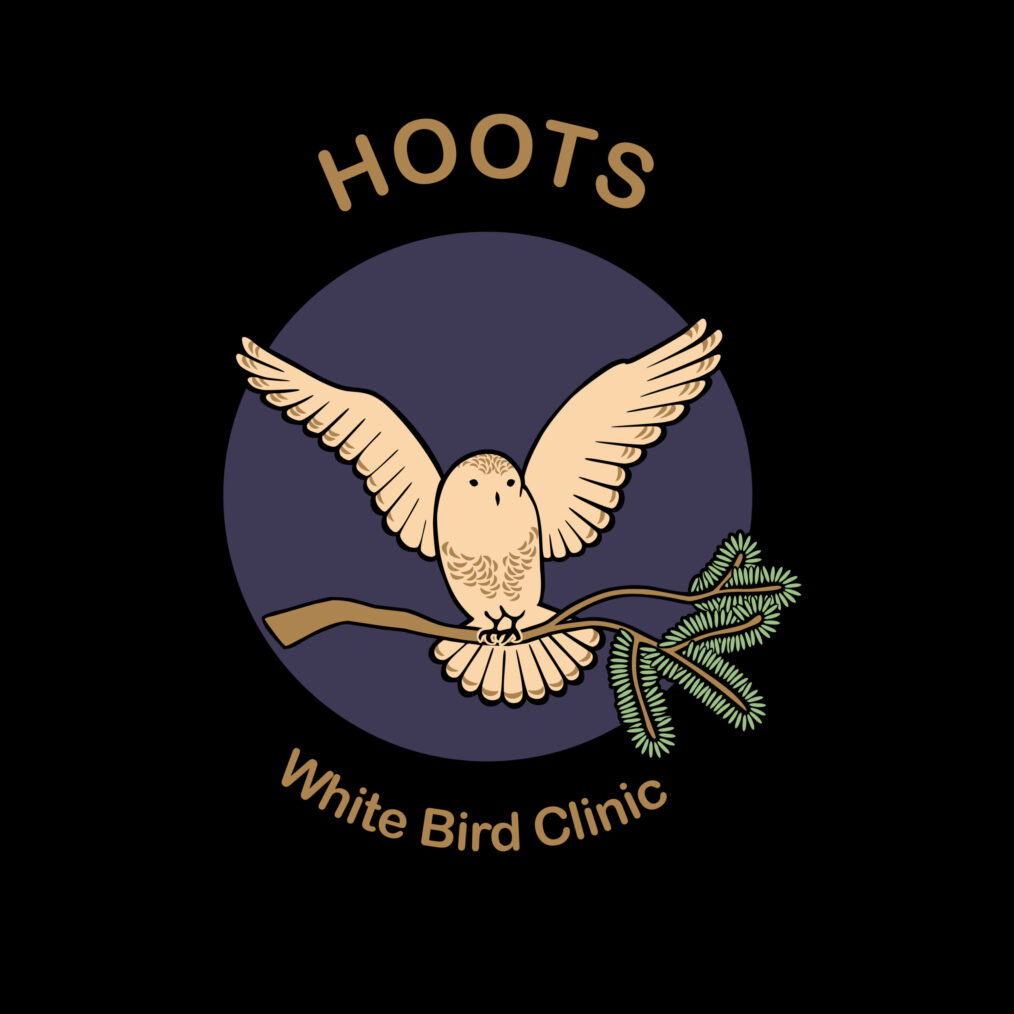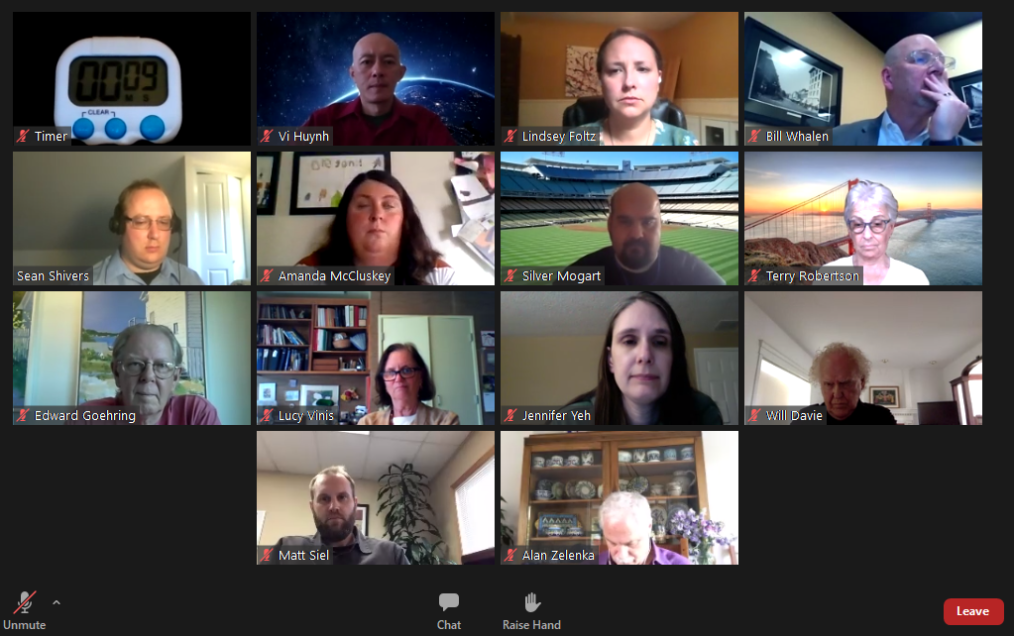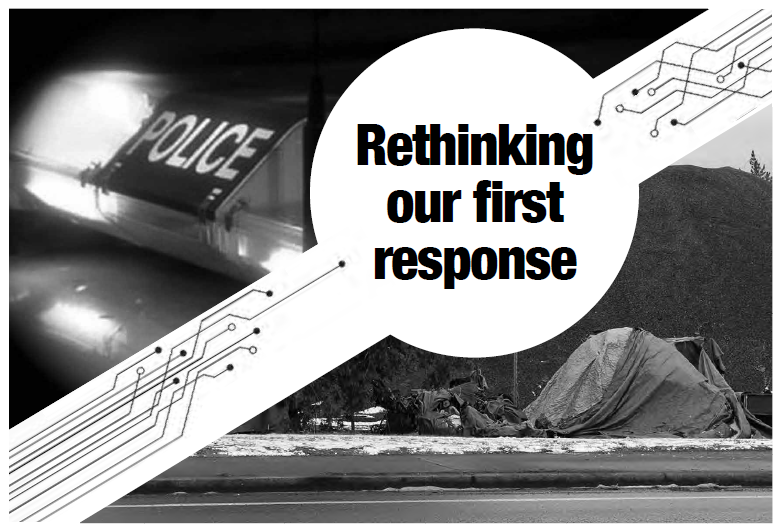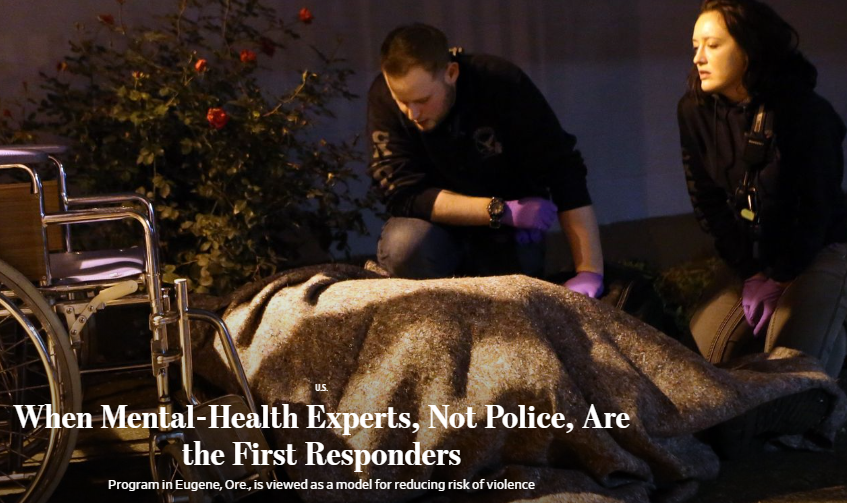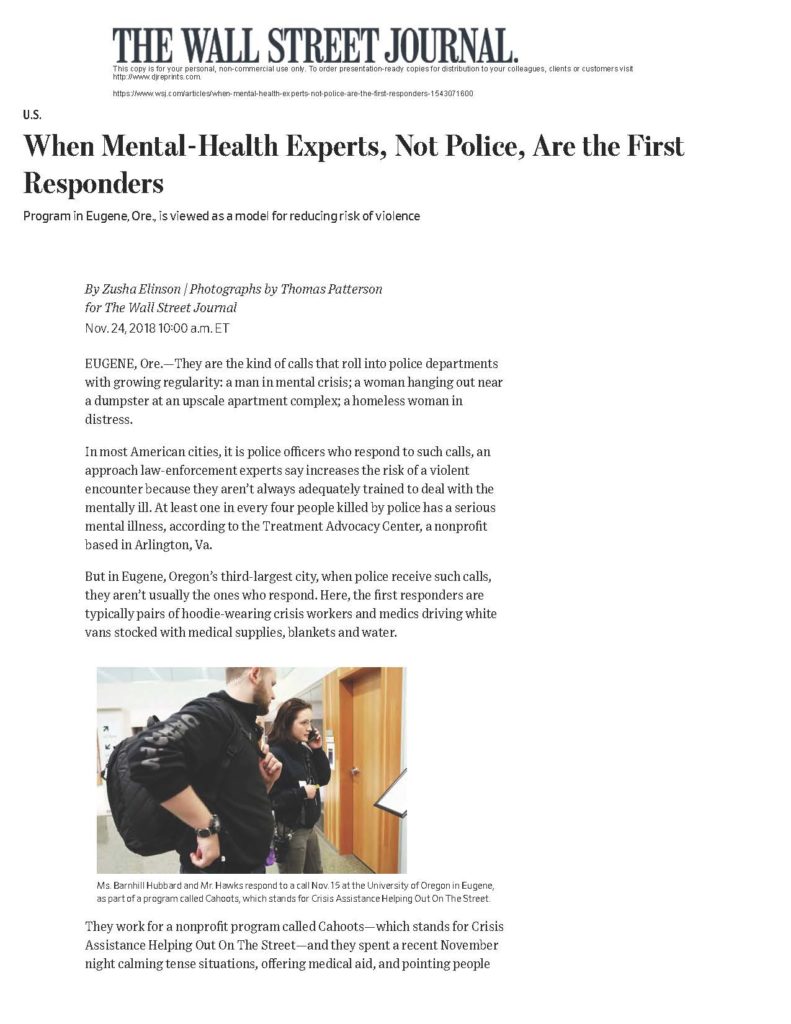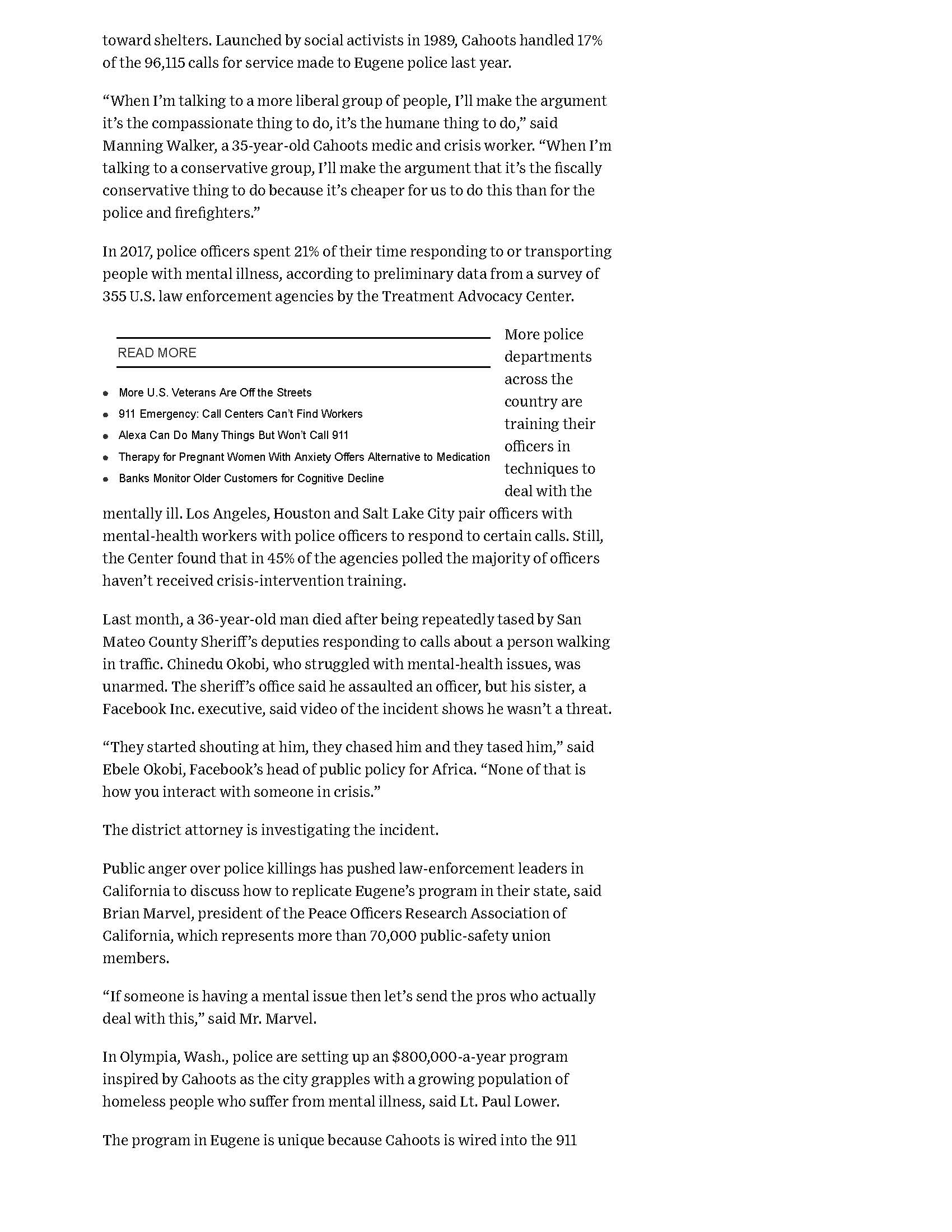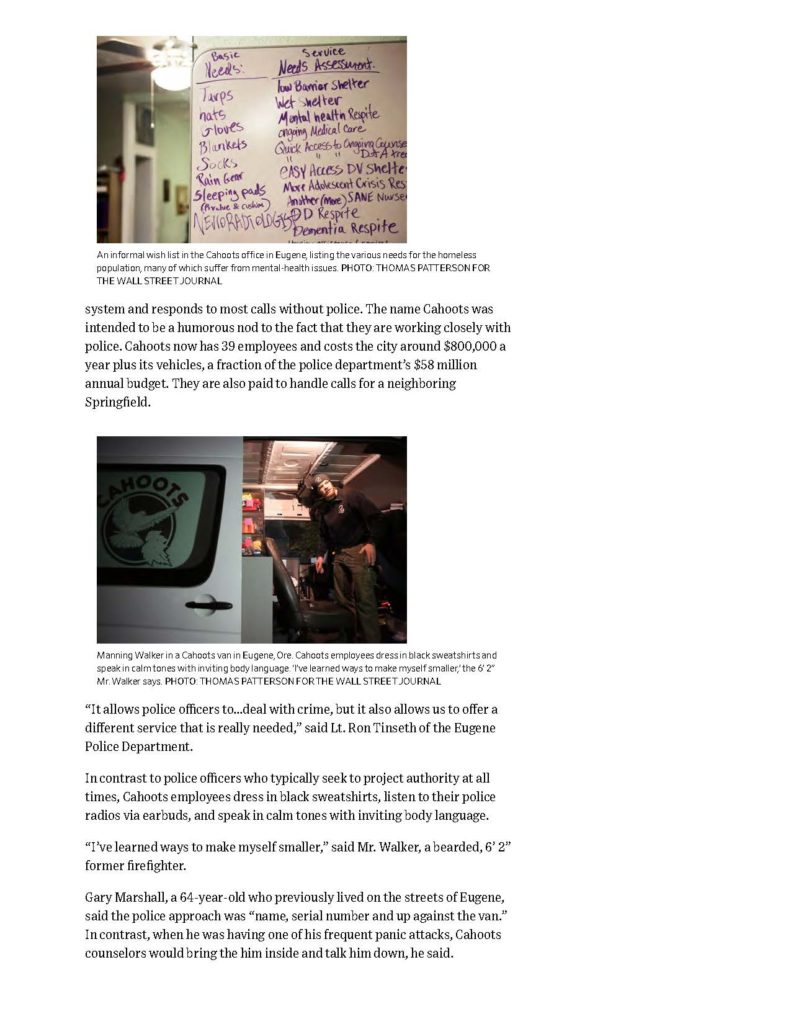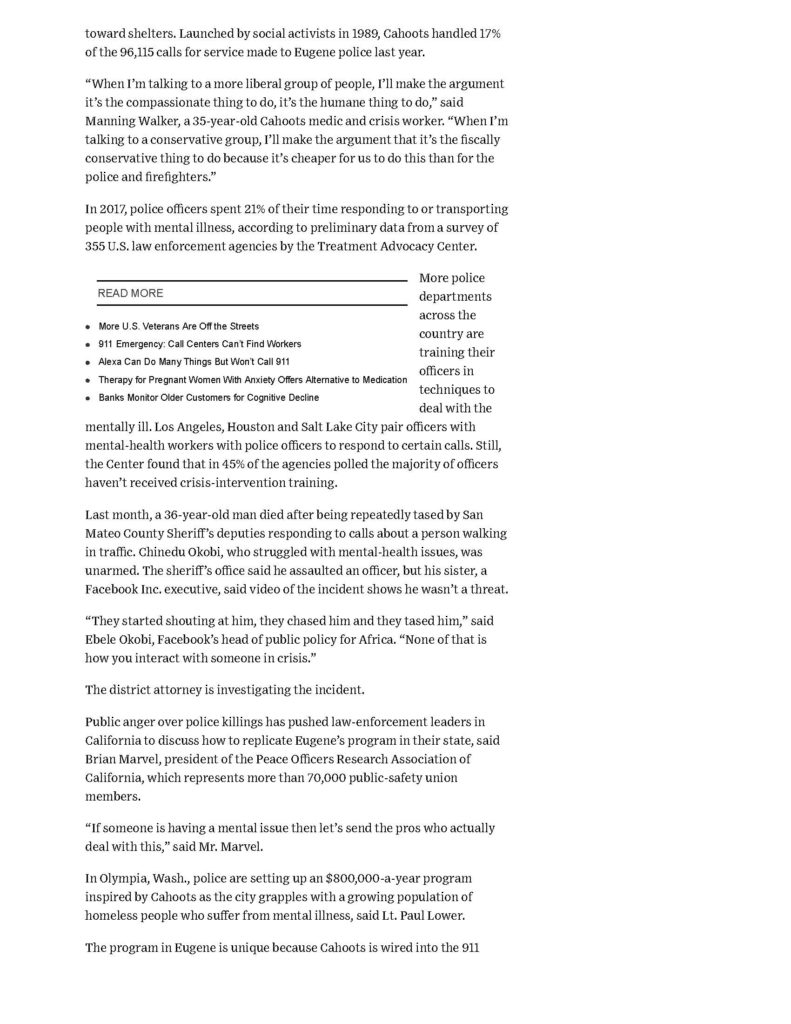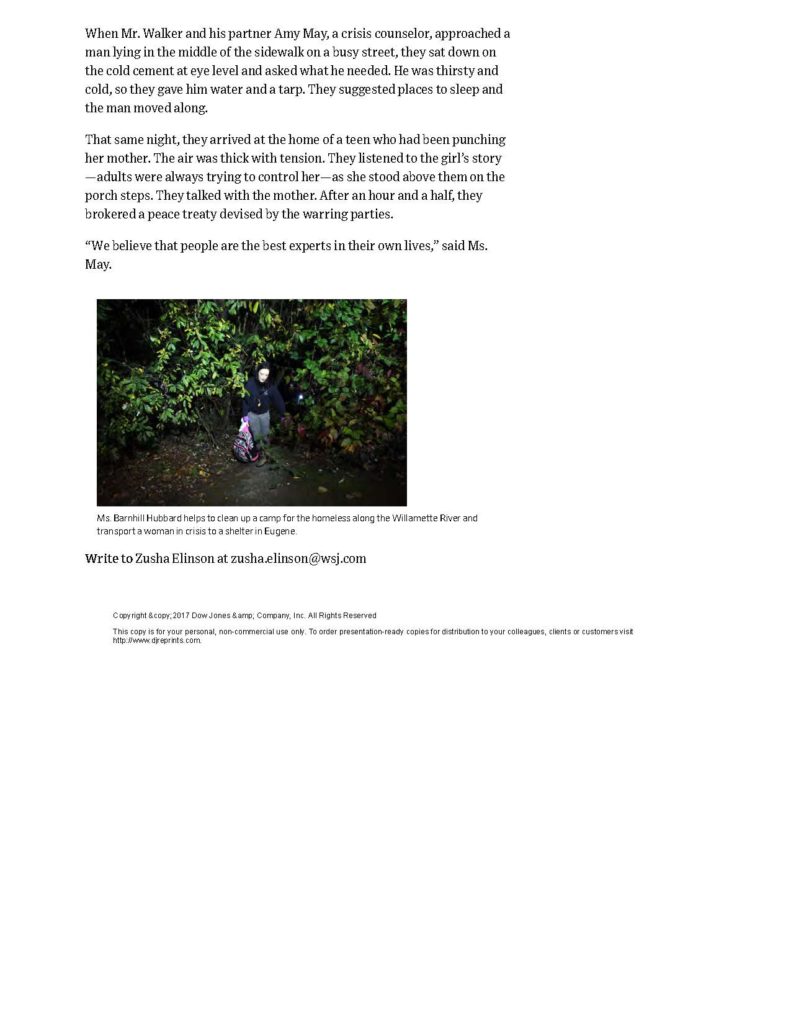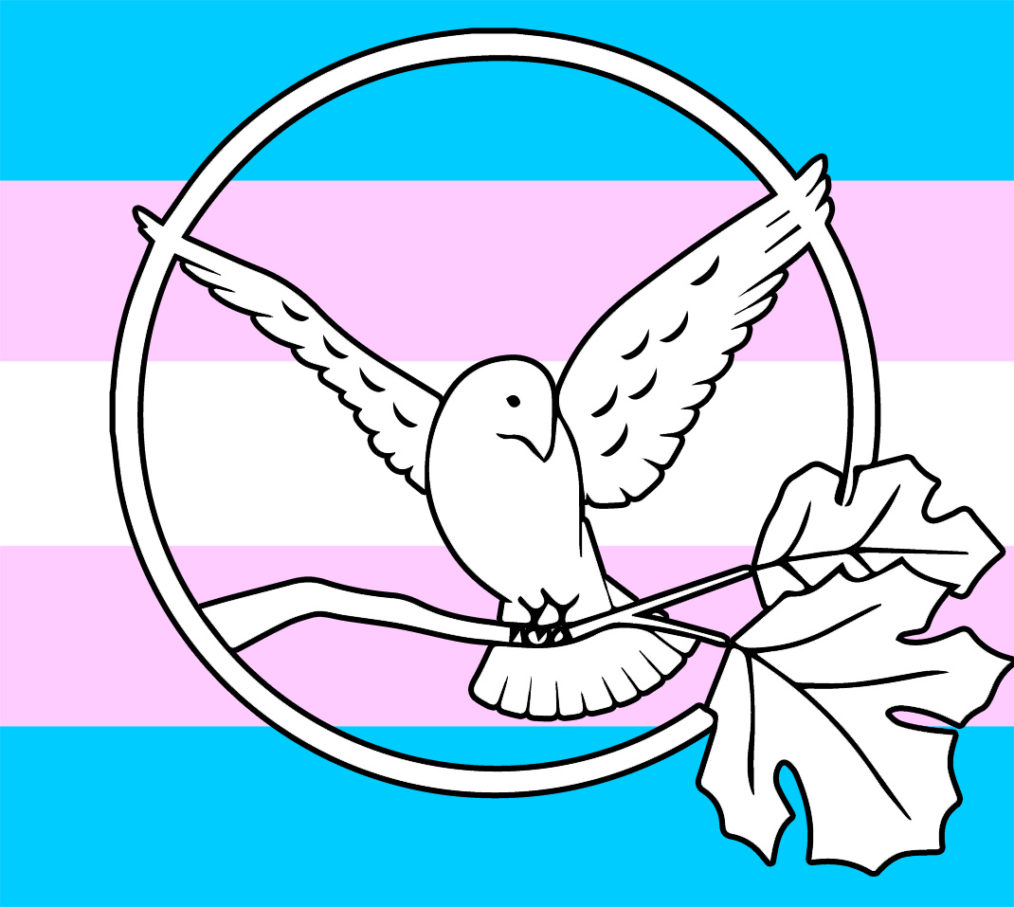On Thursday, March 4th, White Bird Clinic committed to endorsing the Oregon Right To Rest Act (HB 2367). We know from experience that the criminalization of homelessness harms our entire community: public funds drained by punitive measures and “clean-up” initiatives only deepen poverty by creating legal barriers to exiting homelessness.
Penalizing people for living in public when no other options are available is not a deterrent, it is cruel and unusual punishment. Saddling people living in extraordinarily difficult circumstances with fines they can not pay and criminal records that create additional barriers to housing and employment has not prevented homelessness in Lane County, it has created chronic homelessness on a scale unseen in other communities across the United States.
Our municipalities have invested enormous resources in the enforcement of anti-homeless laws (including policing, court processing costs, and incarceration). These policies are often enforced in a discriminatory manner and force people living unsheltered into unsafe and unsanitary situations where the risk of being attacked is increased. Sleep is essential to everyone’s health, well-being, and ability to function. The lack of rest resulting from constant harassment exacerbates and causes physical and mental health issues.
Federal research confirms what many homeless community members already know: the United States Interagency Council on Homelessness has clearly stated that successful responses to homelessness must include an end to criminalization practices, as well as the provision of housing and supportive services. It is not enough to create housing, we must also prevent harm.
This bill does NOT give people the right to leave trash about, urinate in public, aggressively panhandle, block a doorway or passageway, or engage in destructive activities. This bill simply makes it legal for people to move freely, rest, sleep, protect themselves from the elements, eat and share food, and other basic acts necessary for human survival.
The Right To Rest Act (HB 2367) is critical life-saving legislation for our houseless community. It has been called the bill that cannot be killed because of the amount of overwhelming public support it has received in all of the states it has been heard.
But despite HB 2367 receiving an overwhelming amount of public support, the March 9th committee hearing for Right to Rest was suddenly and unexpectedly canceled by the Chair of the Judiciary Committee, Rep. Bynum, the day before the hearing. This came as a shock to endorsers of the bill, all those who had submitted written testimony (80+ people), those who were planning to submit written testimony, and/or those who signed up to speak at the hearing.
The public was outraged! Thanks to everyone who contacted Chair Bynum asking her to reschedule the hearing for the Right to Rest Act. Due to overwhelming public pressure, HB 2367 was rescheduled for a public hearing and work session on April 13th at 1pm, and all of the written testimony that was previously removed is back online!
White Bird Clinic has joined in submitting joint testimony with Western Regional Advocacy Project, Rural Organizing Project, and others to add our voices to demand that the City offer emergency shelter, affordable housing, resources, and legal places to rest. We need to decriminalize homelessness and help support and stabilize our clients so they can access the resources they need, including first and foremost, the right to sleep. Please join us in supporting the Oregon Right To Rest Act (HB 2367) by submitting your written testimony before the hearing before legislators on Tuesday, April 13, 2021 at 1:00 PM PST. You can also register to testify remotely by phone at 833-588-4500.
White Bird and CAHOOTS are excited to submit the following joint testimony in support of the Right to Rest Act (HB 2367).
House Committee on Judiciary Chair Rep. Janelle Bynum
Vice-Chairs Reps Ron Noble and Karin Power
Committee Members Reps Ken Helm, Jason Kropf, Rick Lewis, Lily Morgan, Kim Wallan, Maxine Dexter and Marty Wilde
CC: Reps Wlnsvy Campos (sponsor), Khanh Pham, Dacia Grayber and Maxine Dexter (co-sponsors)
Re: Support Right To Rest Act HB 2367
Date: April 5, 2021
Dear Chair Bynum,
We are submitting this testimony on behalf of undersigned individuals and organizations, all of whom wholeheartedly support the Right to Rest Act, HB 2367. We acknowledge the abject failure of municipal laws that criminalize poverty and homelessness, and we recognize that passage of this legislation will result in more humane and effective responses to homelessness. At a time when Oregon is failing to fulfill our shared value that everyone deserves a safe, decent place to call home, we must stop criminalizing homelessness and redouble our efforts to ensure that we are addressing the root cause of homelessness and not the symptoms. People experiencing homelessness in our community are literally dying because they are prevented from protecting themselves from the elements and are continually pushed into hidden, unsafe areas.
Criminalization is violent, unjust, counterproductive, and creates insurmountable physical and mental barriers that prevent people from getting off the streets. Efforts to address poverty in Oregon using targeted policing strategies have increased dramatically in recent years, and yet the number of people living unsheltered continues to increase. Criminalization further entrenches people into poverty because, in addition to causing a lack of sleep that exacerbates existing physical and mental health conditions, it directly blocks pathways to stability. As people accrue “quality of life” violations, it becomes virtually impossible for them to access essential resources designated to help them: “Even minor crimes can lead to serious consequences, including the loss of a job or the denial of employment, housing, government benefits, and treatment and services” (ACLU Oregon, “Why the Right to Rest is the High Road for Oregon,” pg. 19).
Homeless people are overwhelmingly charged with crimes of survival, and the Right to Rest Act ensures that all Oregonians, regardless of housing status, are able to stand, rest and share food in public spaces. This bill does not give people the right to leave trash about, urinate in public, aggressively panhandle, block a doorway or passageway, or engage in destructive activities. It also does not alter local governments’ ability to enforce laws prohibiting trash, drug use, or public sex. The Right to Rest Act does not grant homeless people special rights, but rather protects their shared right to exist in public spaces without threat of discrimination or harassment.
When there is no public space in which homeless people are legally allowed to conduct activities that everyone must do, they will always be targets for law enforcement or private security forces. This discriminatory pattern – in which laws that will inevitably be broken are created and then brutally enforced – is as American as apple pie: the United States has a long, well-documented history of local governments using their authority to implement local time, place and manner restrictions to target “undesirable” populations and remove them from public spaces, be it Sundown Towns, anti-Okie laws, or Ugly Laws (which criminalized people with disabilities). In extreme cases, the underlying idea that the targets of such laws are disgusting or immoral means that people like James Plymell are allowed to be killed with little to no consequence. Initiatives that infringe on the most basic human and civil rights are, in fact, a dangerous and destructive attack on the only thing that very poor people have to call their own — their humanity.
The solution to homelessness is permanent housing. We must work together to ensure that truly affordable, accessible and adequate housing is available to all who need it. As long as policing remains the first, and in many cases the only response to homeless people who are experiencing mental health crises, using drugs, or simply existing in public spaces as James Plymell was, we will not be seeing the “end of homelessness” anytime soon.
In solidarity,
Right to Survive
Sisters of the Road
Portland-Metro People’s Coalition (PMPC)
Rural Organizing Project (ROP)
Rise and Resist Southern Oregon
Siskiyou Street News
Western Regional Advocacy Project
White Bird Clinic

